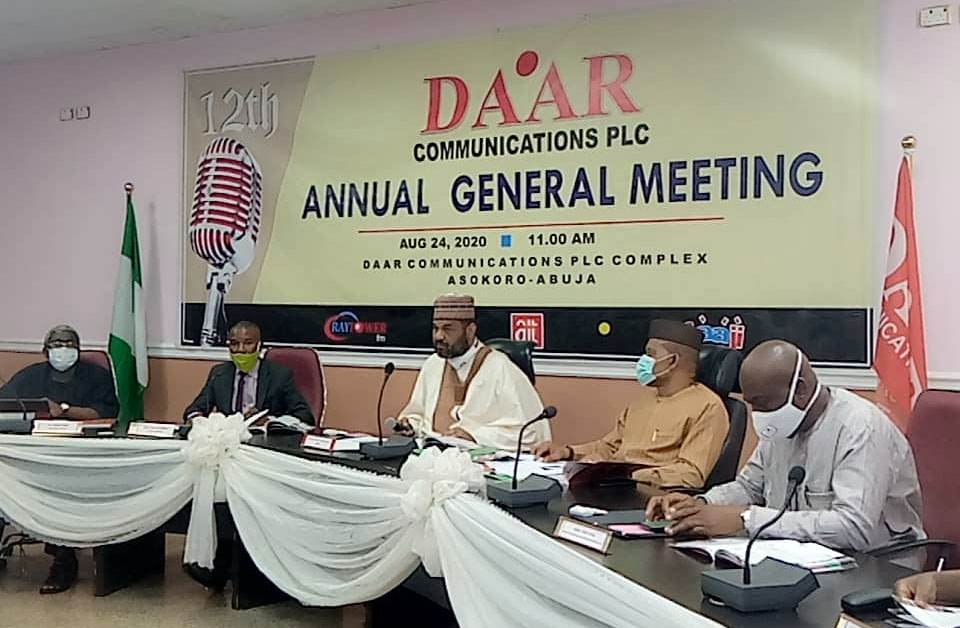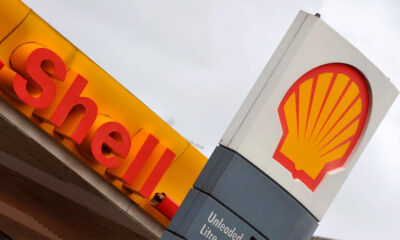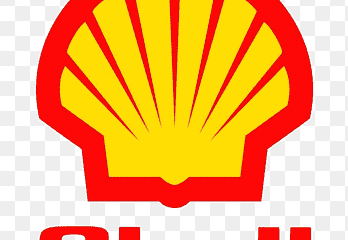Business
Shell $1.3bn assets sale gets regulatory agency nod

Shell $1.3bn assets sale gets regulatory agency nod
The Nigerian Upstream Petroleum Regulatory Commission (NUPRC) has accepted Shell International Plc’s bid to sell its onshore assets to Renaissance in a transaction worth $1.3 billion.
Senior government sources told BusinessDay that the transaction that involves Shell’s 75-year-old onshore assets to Renaissance – a consortium of four exploration and production companies in Nigeria and an international energy group – has got the green light from the regulatory commission as required by the Petroleum Industry Act (PIA).
This deal, if successful, is expected to increase Nigeria’s oil production, boost government petrol dollar earnings, support the naira and accelerate the government’s plans for gas development.
The deal, however, still requires the final approval of President Bola Tinubu, who currently holds the portfolio of minister of petroleum resources.
“NUPRC has approved the sale and made the recommendation to the minister of petroleum for approval. This is on the minister’s table. All ‘next steps’ await the minister’s consent,” a senior government source said.
Another senior government source added, “As you know, the minister, who doubles as president, has been out of the country. As the minister has not yet given his approval, all next steps – statutory payments – await his consent.”
The British energy giant pioneered Nigeria’s oil and gas business beginning in the 1930s. It has struggled for years with hundreds of onshore oil spills as a result of theft, sabotage and operational issues that led to costly repairs and high-profile lawsuits.
Shell in January announced that it had reached an agreement to sell its onshore assets in the Niger Delta region to Renaissance and focus on deepwater and integrated gas investments.
The buyer, the Renaissance consortium, comprises ND Western, Aradel Energy, First E&P, Waltersmith, all local oil exploration and production companies, and Petrolin, a Swiss-based trading and investment company.
Sources said Shell executives have promised to assist in speedily developing Bonga assets, support an increase in oil production and accelerate the government’s plans for gas development if the Shell/Renaissance deal sees the light of the day.
“They want to put $7 billion down to develop Bonga and in three years help local operators develop an additional 300,000 barrels per day (bpd) to 500,000 bpd. They also want to stake partnership to ensure that the gas part of the deal is quickly done to benefit Nigeria,” one of the senior government sources said.
Efforts to reach Olaide Shonola, head of public affairs at NUPRC, via calls or messages proved abortive as at the time of writing these reports.
Implications for Bonga
While the deal promises to inject new energy into Nigeria’s oil and gas sector, experts are closely examining its potential impact on Bonga’s production and development plans.
Bonga, Nigeria’s first deepwater oil field, can currently produce 225,000 bpd of crude oil and 150 million standard cubic feet (scf) per day of gas which feeds the Nigeria Liquefied Natural Gas (NLNG) plant at Bonny.
Developing Bonga Southwest had been expected to add around 1 billion barrels to Nigeria’s oil reserves. Shell had previously said it would develop the Bonga Southwest project across three phases with a total potential yield of 3.2 billion barrels.
Output from the field was one of the projects Nigeria was banking on to raise production to around 3 million bpd by 2023, the Nigerian National Petroleum Company (NNPC) officials said.
Nigeria, which produces high-quality light sweet crude oil, has seen its production slump to multi-decade lows, due to operational, technical and sabotage issues.
Nigeria can pump around 2.2 million bpd of crude and condensate but output languished near 1.3 million bpd in July 2024, according to NUPRC’s estimates.
Developing the Bonga Southwest will cost $10 billion, according to estimates by the NNPC, the concessionaire of the field.
The bulk of Bonga Southwest’s resources are located in OML 118, but it also extends to OMLs 132 and 140, operated by US major Chevron, where it is called Aparo. Other partners in the project are France’s TotalEnergies and Italy’s Eni.
Assets at stake for divestment
Shell said it has structured the deal to maintain Shell Petroleum Development Company of Nigeria Limited (SPDC) operational capabilities to support the SPDC Joint Venture (SPDC JV).
Data sourced from Shell Nigeria’s Briefing Notes 2023 showed the operating assets of SPDC JV include: 250 producing oil wells (189 West assets and 61 East assets); 37 producing gas wells (4 West assets and 33 East assets); four gas plants and two onshore oil export terminals.
Other partners in the SPDC JV include: the NNPC (55 percent), Total Exploration and Production Nigeria (10 percent) and Nigeria Agip Oil Company (5 percent).
As part of the transition, SPDC’s employees will remain with the company under the new ownership.
Shell’s 25.6 percent interest in Nigeria’s Liquefied Natural Gas (NLNG) plant is not included in this transaction.
Shell’s presence in Nigeria will still be significant post-sale, with three businesses that will also remain outside the scope of the deal.
These include: Shell Nigeria Exploration and Production Company, which operates in the deepwater Gulf of Guinea; Shell Nigeria Gas, which supplies gas to local industries and commercial customers; and Daystar Power Group, which is engaged in offering solar power solutions across West Africa.
Win for indigenous companies
The Renaissance consortium comprises some of Nigeria’s most respected upstream companies with demonstrated track records of redeveloping mature assets in the Niger Delta.
Individually, each of Renaissance’s shareholders has also demonstrated an ability to operate in Nigeria and maximise domestic value creation. Aradel Holdings has grown an integrated oil, gas and refining business around Ogbele that has continued to expand over the years.
Waltersmith follows a similar pattern as operator of the producing Ibigwe marginal field and the Ibigwe modular refinery. First E&P successfully commissioned the Anyala-Madu shallow water hub in 2020 and is working with Dangote on achieving first oil at the Kalaekule Field soon.
Nigeria is currently faced with a gas supply shortage that must be addressed to meet the objectives of the ‘Decade of Gas,’ which seeks to grow gas penetration and develop a gas-based economy that is more sustainable and spurs industrialisation.
As Nigeria seeks to grow gas production, processing, and distribution, Renaissance will become a pillar of the country’s gas monetisation strategy and a critical partner to the public and private sector players seeking to expand the country’s gas value-chain.
In that regard, the appointment of Tony Attah, former Shell executive and managing director/CEO of Nigeria LNG for more than five years, as Renaissance’s first MD/CEO is not insignificant.
Business
Nigerian Equities Post World’s Second-Best Dollar Returns in 2026, Recover $21bn

Nigerian Equities Post World’s Second-Best Dollar Returns in 2026, Recover $21bn
Nigerian equities have emerged as one of the best-performing stock markets globally in 2026, delivering the world’s second-best dollar returns after years of currency-driven losses and weak investor sentiment. The local market has risen 31 percent in dollar terms this year, helping investors recoup about $21 billion in market value lost following the sharp naira devaluation in 2024.
Market capitalisation on the Nigerian Exchange Group has climbed to approximately $84 billion, representing a 58 percent increase from levels recorded before the currency collapse. According to Bloomberg, Nigeria’s benchmark equity index has surged 31 percent year-to-date, significantly outperforming global peers. The rally far outpaces the 11 percent gain in the broader emerging-market index and the 6.4 percent advance recorded by frontier-market stocks.
Analysts attribute the sharp rebound to a combination of stronger corporate earnings, exchange-rate stability, and renewed investor confidence following wide-ranging economic reforms. Olabode Williams, an analyst at SBG Securities Ltd, said companies hardest hit by the naira’s earlier collapse have now stabilised their balance sheets and returned to profitability. He noted that investors are increasingly pricing in growth as corporate fundamentals improve, adding that Nigerian equities are becoming more attractive to both local and foreign investors after years of underperformance.
READ ALSO:
- Ramadan Begins in Nigeria as Sultan Confirms Crescent Sighting
- Deadlock at National Assembly as House Snubs Electoral Act Bill Meeting on E-Transmission Clause
- Maikori Accuses Ex‑Governor El‑Rufai of Persecution Over 2017 Tweet
The rally has also been supported by a firmer naira, which has appreciated by more than seven percent against the dollar in 2026, ranking as the world’s second-best performing currency among those tracked by Bloomberg. The currency rebound has strengthened dollar-based equity returns and helped reverse losses triggered by earlier exchange-rate volatility.
Foreign participation has increased sharply alongside the rally. Data from the Nigerian Exchange Group shows that non-Nigerian trading in local equities reached a 19-year high in 2025. Transactions by foreign investors tripled to ₦2.65 trillion ($1.97 billion) from ₦852 billion in the previous year, reflecting renewed global appetite for Nigerian risk assets.
Market analysts believe the rally could extend further if major listings materialise. Gloria Fadipe, an analyst at CSL Stockbrokers Ltd, a unit of FCMB Group Plc, said the market could exceed $100 billion in valuation this year if large-scale listings proceed. She noted that potential listings of Dangote Refinery and Dangote Fertiliser could deliver capital gains of up to 34 percent while deepening market liquidity.
The rebound comes amid broader macroeconomic reforms introduced by Bola Tinubu, including the unification and liberalisation of the foreign-exchange market. While the reforms initially triggered volatility and inflationary pressure, economists say they are restoring policy credibility, improving capital inflows, and repositioning Nigerian assets for sustained long-term growth.
Nigerian Equities Post World’s Second-Best Dollar Returns in 2026, Recover $21bn
Business
Naira Maintains Stability Against Dollar as CBN FX Measures Keep Markets Calm

Naira Maintains Stability Against Dollar as CBN FX Measures Keep Markets Calm
The Nigerian Naira showed relative stability against the United States Dollar during Tuesday, February 17, 2026, trading sessions in both official and parallel foreign exchange markets. After a weekend of consolidation, the local currency continued to hover around the ₦1,350 band, reflecting the effectiveness of the Central Bank of Nigeria’s (CBN) liquidity management policies.
In the official Nigerian Foreign Exchange Market (NFEM), the Naira opened at ₦1,351.18 per dollar and adjusted slightly by mid-morning to ₦1,354.86, a movement attributed to early-week corporate demand. Analysts say the Electronic Foreign Exchange Matching System (EFEMS) and the Monetary Policy Rate (MPR) have helped anchor the official exchange rate below the ₦1,400 mark for over two weeks, providing a predictable environment for businesses and investors.
READ ALSO:
- 28 Wedding Guests Die in Separate Road, Boat Accidents in Enugu, Kebbi
- FG, Progressive Governors Forum Pledge ₦8bn Relief for Singer Market Fire Victims
- Former INEC REC Warns of “Chaos” in 2027 Over E-Transmission of Election Results
Meanwhile, in the parallel market, the Naira traded at a traditional premium, ranging from ₦1,380 to ₦1,440 per dollar in commercial hubs like Lagos, Abuja, and Kano. Traders reported sufficient dollar supply for personal travel and small-scale business transactions, noting that the narrowing gap between official and parallel rates has discouraged speculative hoarding and improved market efficiency.
Recent CBN interventions, including expanding access to licensed Bureau De Change operators and enforcing regulatory compliance, have strengthened FX liquidity, allowing for more transparent price discovery. Combined with Nigeria’s moderating inflation rates and robust external reserves of around $49 billion, these measures have bolstered confidence in the Naira and helped limit excessive volatility.
Market watchers, however, caution that challenges remain, including uneven foreign exchange inflows and persistent demand pressures in the informal sector. Sustaining the Naira’s stability in the coming weeks will depend on continued policy consistency, enhanced liquidity provision, and investor participation across sectors.
Summary of Rates on February 17, 2026:
- Official NFEM Opening: ₦1,351.18 per $1
- Official NFEM Mid-Morning: ₦1,354.86 per $1
- Parallel Market Range: ₦1,380 – ₦1,440 per $1
Analysts remain cautiously optimistic that the Naira can maintain its stability and momentum for the remainder of February, provided that external reserves and FX supply measures continue to support the market.
Naira Maintains Stability Against Dollar as CBN FX Measures Keep Markets Calm
Business
Dokpesi Jr, Ex-GMD Akiotu Clash Over DAAR Communications Mgt Restructuring

Dokpesi Jr, Ex-GMD Akiotu Clash Over DAAR Communications Mgt Restructuring
A public dispute has erupted at DAAR Communications Plc as Chairman Raymond Dokpesi Jr and former Group Managing Director, High Chief Tony Akiotu, publicly clashed over the company’s recent management restructuring, raising questions about corporate governance and the legacy of Nigeria’s pioneering media organisation.
Speaking in Abuja, Dokpesi Jr defended the executive shake-up, stating he has “no regrets” about the decisions made following the sudden death of the company’s founder, Raymond Aleogho Dokpesi Sr. He described the departure of long-serving executives as a difficult but necessary step to ensure stability, investor confidence, and future growth. The chairman noted that the company faced challenges after his father’s passing, including declining share value and reduced investor confidence, and emphasised that the transition process was carefully managed to minimise tension.
READ ALSO:
- EFCC Holds El-Rufai Overnight Over ₦423bn Kaduna Corruption Allegations
- Troops Intercept ₦37m Terror Funds, Phones, ISWAP Logistics in Borno Operations
- X Restored After Global Outage Disrupts Millions Worldwide
Dokpesi Jr acknowledged that the exiting executives were owed salary arrears and other entitlements, which the organisation has been settling, amounting to billions of naira accumulated over their 15-year tenure. He explained that the restructuring allowed the company to prioritise outstanding obligations and improve operational efficiency, with most business units now financially independent and others expected to achieve autonomy before the end of the year. “I will continue to apologise to Mr Tony Akiotu and the affected management staff for any hurt feelings,” he said, “but I have no regrets — the results validate the decision.”
In response, Akiotu criticised Dokpesi Jr’s statement as unfair and misleading. He argued that it was inappropriate for a chairman who presided over board meetings and approved management memos to later accuse the same leadership team of mismanagement. Akiotu highlighted that all major operational and financial decisions during his tenure were subject to board approval, and that the team had contributed significantly to the company’s growth into a national and international media brand, with operations spanning Nigeria, the United Kingdom, and the United States.
Akiotu also noted that while executive retirements may be permissible under corporate regulations, the public portrayal of their tenure overlooked the sacrifices made to build one of Nigeria’s pioneering broadcast institutions. “If Raymond Dokpesi Jr believes we played no part in the growth of the company, we leave it to Nigerians and history to make that judgment,” he said.
Industry observers say the dispute underscores ongoing debates about corporate governance, leadership succession, and strategic reform within DAAR Communications, which continues to be a major player in Nigeria’s broadcast media sector. Both parties have called for dialogue, but the public nature of the clash has drawn attention across the media and business community, with speculation over potential boardroom changes and the company’s future direction.
Dokpesi Jr, Ex-GMD Akiotu Clash Over DAAR Communications Mgt Restructuring
-

 News1 day ago
News1 day agoSaudi Arabia Confirms Sighting of Ramadan Crescent, Fasting Begins Wednesday
-

 metro1 day ago
metro1 day agoLagos Woman Shares Ordeal After Alleged Rape, Sparks Nationwide Outcry
-

 metro3 days ago
metro3 days agoUS Freezes Assets of Eight Nigerians Over Boko Haram, ISIL, Cybercrime Links
-

 News1 day ago
News1 day agoRamadan Begins in Nigeria as Sultan Confirms Crescent Sighting
-

 Entertainment3 days ago
Entertainment3 days agoMystery in Lekki: Police Probe Death of Two Nollywood Crew Found Lifeless in Parked Car
-

 metro3 days ago
metro3 days agoTerror in Lagos Traffic: Cutlass Gang Unleashes Mayhem on Mile 12–Ketu Road
-

 Auto3 days ago
Auto3 days agoAppeal Court Ruling on VIO Limited to Abuja, Not Lagos — LASG
-

 metro1 day ago
metro1 day agoSeven Killed in Horrific Crash at Ota Toll Gate













